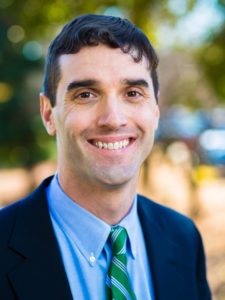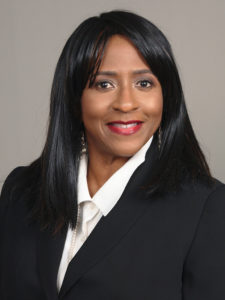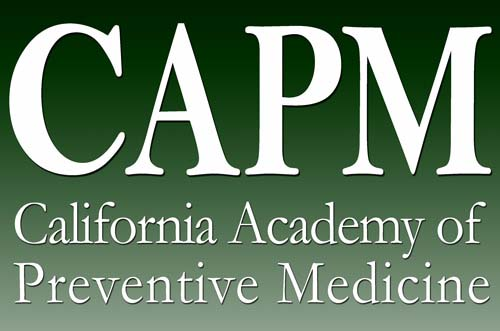Annual CAPM Meeting in Sacramento 12/7/17
ANNUAL MEETING SUMMARIZES 2017, PLANS FOR 2018
CAPM held its 2017 Annual Meeting in Sacramento on December 7.

Election:
Members newly elected to the Board for 2018 included Susan Bradshaw as President-Elect; and Sumedh Mankar and Mark Horton as directors. Rob Oldham, who was President-Elect for 2017, will move up to be President in 2018. Continuing Board members will include Linda Hill who will become Immediate Past-President, Ron Hattis, who will remain Secretary-Treasurer, and Liana Lianov, who has a year remaining as a director.
In Rob Oldham’s remarks as incoming President, he addressed the importance of legislative advocacy. He suggested that 2-3 issues or bills could be selected annually, for a larger number of members to be involved with. Rob also pointed out the dramatic reductions in Health Realignment funding that is a huge threat to local public health. He talked about the importance of our relationship with CMA. He mentioned that we might have an opportunity to influence the public health policy platform of gubernatorial campaigns. He concluded by talking about how fortunate we are to have a state Preventive Medicine Academy, as most states do not have this.
Legislation:
Don Lyman and Ron Hattis reported on legislation. The CAPM Board supported 13 bills in 2017 and opposed 1. Of the 14 on which we had positions, 6 passed and were signed (including the one we opposed).
The six bills passed and signed into law will:
- Develop protocols for CHDP exams to include trauma screening
- End the requirement that health facilities treat pain as a vital sign (Don mentioned that a recent article in the New Yorker suggested that in formerly promoting this concept, the medical community had been used by opiate manufacturing marketers.)
- Establish alcohol training for beverage servers
- Develop regulations for child lead risk evaluation
- Assure that Medi-Cal patients can obtain family planning services out of network
- Rescind penalties for knowing exposure to HIV and other communicable diseases (CAPM, in partnership with Beyond AIDS, was not able to negotiate a compromise with the sponsors, so we opposed this bill and asked unsuccessfully for a veto. We wanted to preserve a misdemeanor penalty for behavior that knowingly exposed others to communicable diseases in general, and thought that giving up that power weakened public health.)
Don also reported he had been the lead author of the CMA report recommending changing cannabis laws, and CMA recommended him as a lead spokesperson for the statewide initiative on recreational cannabis.
CMA Activities:
Don, Ron, and Susan Bradshaw also reported on CMA representation. CAPM has several avenues for input on CMA policy: by testifying online on resolutions, through its three current representatives on the Council on Science and Public Health, and through representation at the House of Delegates. Don is the chair of that Council, and Rob Oldham and Jessica Nunez are members. Don explained that under the new structure, policy in the form of resolutions is determined by the Board of Trustees rather than by the much larger House of Delegates, except for a few major issues referred to the latter. Following initial testimony, resolutions are distributed among Councils for review and recommendations (usually including amendments). CMA members, specialty societies, and delegations may post online testimony before and after council review. Finally, the resolutions are referred to the Board of Trustees for definitive action. CMA has been active on public health issues since the late 1980s.
In addition to reviewing resolutions, during the past year, the Council on Science and Public Health has produced policy papers for Board of Trustees approved on Mental Health and on firearms and violence.
Topics of resolutions supported by the CAPM Board, for which substitute (amended) resolutions were approved by CMA, included:
- Addressing antibiotic-resistant bacteria as an emergency
- Improving implementation of medical cannabis
- Limiting categories of drug prescriptions that should be reported on the CURES database (the CAPM Board favored limiting to Schedule II but the CMA Board of Trustees disapproved this)
- Support for the National Institutes of Health
- Making oral contraceptives available over the counter, with pharmacists counseling patients (A majority of the CAPM Board favored this, although the issue was controversial. The Council and Board of Trustees considered this premature pending the results of studies in which pharmacists are being trained for this task.)
- Support for programs to prevent resumption of smoking after release from prison
- Promotion of education on celiac disease
- Improving the quality of immigration detention health
- Regulation and monitoring of medical exemptions from childhood immunizations*
- Allowing use of medical cannabis by patients in opioid treatment programs*
- Establishing standards for workplace lead exposure*

The CMA House of Delegates met October 20-22, 2017, in Anaheim. Susan Bradshaw (attending for the first time as CAPM’s Alternate Delegate) thanked Don Lyman (CAPM’s Delegate) and Ron Hattis (Past Delegate) for sharing their experience, to orient her. Susan found that Preventive Medicine physicians have a lot to offer. She was asked a lot of questions on chronic disease prevention, lifestyle medicine, and epidemiology. Someone introduced her as a “Preventive Medicine physician, one of the smart ones.”
Ideas for Future CMA Resolutions to be Introduced by CAPM:
CAPM has not introduced its own resolutions to CMA for quite a while. Ron Hattis suggested that we resume doing this if we have good public health ideas that are not already CMA policy. In brief “brainstorming,” the following were proposed by members listed in parentheses, as topics for consideration by the Board:
- Prioritization of Linkage of CURES and Immunization Registry to EMRs (Ron Hattis)
- Promoting routine HIV testing and early initiation of treatment, incl. implementing CA laws (Ron Hattis)
- Encouraging the general population to fill out POLST forms and to start end of life discussions when they enroll into MediCare (Sumedh Mankar)
- Supporting increasing opioid treatment capacity via “MAT access points” (medication-assisted treatment, e.g., buprenorphine availability) in primary care, ERs, inpatient settings, and the criminal justice system (Christine Wu)
- Supporting naloxone accessibility (Mark Horton)
- Preserving funding for public health in the face of realignment (Rob Oldham)
- Finding sources of funding for Preventive Medicine residencies (Jessica Nunez)
Ideas will be considered by the CAPM Board. Ron reminded the group that resolutions introduced by CAPM should be within our area of specialization and expertise, and individual specialties or delegations do not attempt to dominate the conversation by sponsoring more than 1 to 3 resolutions at a time.
California Preventive Medicine/Public Health Medical Leadership Forum:
The Forum has been holding conference calls since 2014. Mark has been the Chair the entire time, and Ron the Secretary. Mark Horton briefly reported on the Public Health/Preventive Medicine Physician Leadership Forum calls, with reference to a written report from Ron Hattis. A written summary of what was discussed at the last 4 meetings was also presented.
These calls typically occur every three months. There is broad participation from physician leadership, with designated representatives from academic medical centers and schools of public health as well as from other organizations including HOAC, CMA, AAPM, CDPH and DHCS, and from CAPM membership. Topics for discussion typically include medical student exposure to public health and to Preventive Medicine and Occupational Medicine as specialties, including training and career opportunities, and review of current bills pending in the legislature and resolutions being considered by the CMA, as well as a broad range of other topics relevant to public health. The most recent call was on 5 December; at which the roles of local public health and its relations with educational institutions and organized medicine were discussed. The next one will be scheduled in three months–usually 8:15 am to 9:30 am on a Tuesday morning.
Mark also mentioned that he serves on the Governing Council of the California Public Health Association-North, and that he has encouraged consideration of formalizing a relationship between CAPM and CPHA-N to better align policy and advocacy efforts; and offered to serve as a liaison between the two organizations to that end.
*Board of Trustees action for these resolutions was pending as of the annual CAPM meeting, and was taken on January 19, 2018.

This site is protected by reCAPTCHA and the Google Privacy Policy and Terms of Service apply.